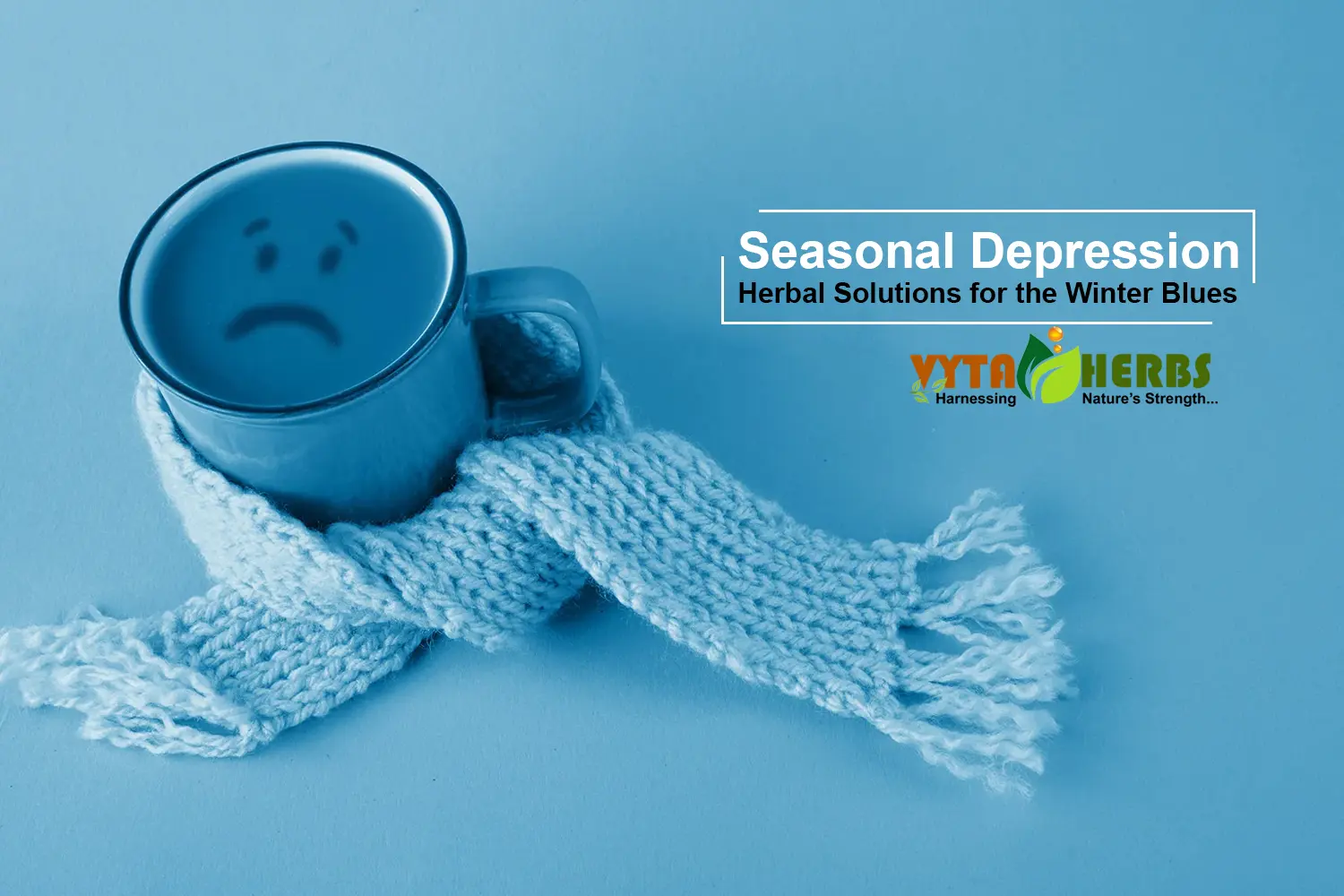As the colder months approach, many people experience a dip in mood, lower energy, and increased feelings of sadness or anxiety – a phenomenon known as Seasonal Affective Disorder (SAD). While traditional treatments like light therapy and lifestyle changes can help, there’s also growing interest in natural remedies to lift spirits and promote emotional well-being during this time. Herbal supplements like St. John’s Wort, Ashwagandha, and even Omega-3-rich fish oil offer safe and effective ways to manage the “winter blues.” Let’s explore these powerful herbs and how they can help you feel more energized, balanced, and ready to take on the season.
1. Understanding Seasonal Depression (SAD)
- Seasonal Affective Disorder, or SAD, is a type of depression that typically occurs during colder months when sunlight exposure is reduced.
- Symptoms include low energy, mood swings, irritability, and difficulty concentrating.
2. How Herbs Can Help Manage SAD
- Certain herbs and natural supplements can support mood regulation, relieve anxiety, and reduce stress levels.
- Herbs work by balancing hormones, boosting serotonin, and providing essential nutrients for brain health.
3. Top Herbal Solutions for Seasonal Depression
a) St. John’s Wort
- Known for its mood-lifting properties, St. John’s Wort is widely used to help with mild to moderate depression.
- It boosts serotonin levels, which can alleviate feelings of sadness and improve mood.
- Note: It may interact with some medications, so consult with a doctor before use.
b) Ashwagandha
- Ashwagandha is an adaptogen, meaning it helps the body manage stress.
- It reduces cortisol levels (the stress hormone), which can help with anxiety and promote calmness.
- Regular use can support better sleep and overall emotional well-being.
c) Rhodiola Rosea
- This herb is another powerful adaptogen known to combat fatigue and support a balanced mood.
- It helps with energy levels and may improve focus and mental clarity, which are often affected by SAD.
d) Saffron
- Saffron is a natural mood booster with compounds that increase serotonin and dopamine levels.
- Studies show it can be effective in alleviating symptoms of mild depression and anxiety.
- Just a small amount daily can have a positive impact on mood.
e) Chamomile
- Chamomile is known for its calming effects, helping to ease anxiety and promote restful sleep.
- Drinking chamomile tea or taking it in supplement form can provide relaxation and reduce insomnia, a common symptom of SAD.
4. Herbal Teas for Comfort and Warmth
- Herbal teas can offer both the calming effects of certain herbs and the warmth that can be soothing during colder months.
- Try teas made with chamomile, lavender, or lemon balm for an evening wind-down.
5. Lifestyle Tips to Complement Herbal Remedies
- Light Therapy: Spending time outside or using a light therapy box can help improve symptoms.
- Exercise: Regular physical activity boosts endorphins, which naturally improve mood.
- Mindfulness: Practicing meditation or deep breathing can reduce stress and help maintain a positive outlook.
6. Using Herbal Supplements Safely
- Always start with a low dose, especially if you’re new to herbal supplements.
- Speak with a healthcare provider, particularly if you’re on medication, as some herbs may interact with prescriptions.
7. Can Shilajit and Omega Fish Oil Help with Seasonal Depression?
a) Shilajit
- Shilajit is rich in fulvic acid and minerals that improve energy levels, helping to combat the fatigue often associated with SAD.
- It has antioxidant properties that may help reduce oxidative stress, which is linked to anxiety and low mood.
- By supporting overall vitality and reducing fatigue, Shilajit can contribute to a better sense of well-being.
b) Omega Fish Oil
- Omega-3 fatty acids in fish oil are known to support brain health and emotional balance.
- They play a role in improving serotonin levels, which are key for mood regulation.
- Studies have shown that Omega-3s may reduce symptoms of depression, including seasonal affective disorder, when taken regularly.







